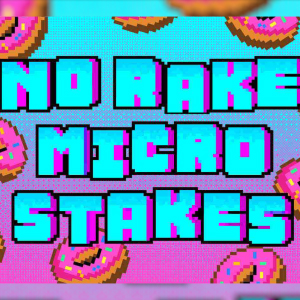The Calculated Gamble: Inside the World of a Professional Card Counter
4 months ago

14 May
For those attracted by the idea of outsmarting the casino within the dazzling confines of Las Vegas, the life of a professional card counter might be a tempting one.
Images of smart and composed characters, discreetly building a fortune at blackjack tables is something straight out of a movie, yet outside of this glamor is a real industry where professional counters actually make a living out their controversial skill.
Let´s look at the story of a real-life card counter, much like the example of Quattro, a YouTube influencer who has somehow mastered the art of tracking hundreds of cards at once, much to the fury of casino bosses.
What is a card counting?
In its simplest form, card counting in blackjack is a strategy used to determine whether the next hand is likely to be advantageous to the player or the dealer.
It involves assigning point values to different cards as they are dealt. Low cards (2-6) are typically given a positive value, high cards (10, Jack, Queen, King, Ace) a negative value, and neutral cards (7-9) a value of zero.
A card counter can estimate the current composition of the remaining cards in the deck or shoe by keeping a running tally. A positive count indicates a higher proportion of high cards remaining, which is favorable for the player, while a negative count suggests a higher proportion of low cards, favoring the dealer.
This information allows the counters to adjust their bet size and playing strategy according to the tally, increasing bets when the odds are in their favor and decreasing them when the odds are against them.
When done well, it can land the counter large sum of money. The trick, however, is to evade the gaze of casino owners who fiercely keep tabs on what they consider to be cheating and often use force to eject card counters from their premises.
Quattro’s story
The campaign against card counting in casinos has virtually wiped out the practice, giving it an almost myth-like status. To many, it seems almost impossible: how could anyone possibly track the constant flow of hundreds of cards and use that knowledge for financial gain, all without tracking the attention of casino cameras?
Yet some people have beaten these odds and have the evidence to prove it. One such a figure, operating under the pseudonym Quattro, a 24-year-old from Canada, shares his successful encounters with Vegas through his popular YouTube channel.
Quattro’s videos offer a fascinating insight into his profession. Using a concealed camera, he documents his entries into various casinos, each video ending in a cash reward from the blackjack tables. He provides his audience with insights into the strategies he uses to maintain his advantage. Alongside the ongoing game of evasion he plays with watchful pit bosses, who´s intention is to protect their profits.
The channel is a hit. At the time of writing, Quattro has 65,500 subscribers and his videos regularly achieve hundreds of thousands views.
His story is an interesting one. Starting as a kid who played blackjack occasionally to an expert card counter or, what he calls, an “advantaged player”.
From casual player to professional counter
To start with, gambling held little appeal to Quattro. Occasional casino visits normally ended with a swift loss at the blackjack table.
However, a turning point came when he made friends with card counters online who offered to share their methods. Being a quick learner, he grasped theirstrategy surprisingly quick. He found out that,if he builds the right knowledge and skill, gaining an edge over the house will be possible.
This marked the beginning of Quattro’s career as a professional card counter, involving traveling across North America, renting out cheap hotels so he could settle into a location before hitting the gambling venue with his method.
An accessible craft
Quattro was surprised how accessible the craft was. He found out, that exceptional cognitive ability wasn´t necessary.All he needs to know was the core principle of tracking the reduction of "small cards" – twos through sixes – from the dealer's dealing shoe.
As these cards are dealt, they are removed from play until the decks are reshuffled.A higher concentration of remaining "big cards" – tens, jacks, queens, kings, and aces – shifts the statistical odds in the player's favor, creating opportunities for larger, more profitable wagers.
When the count indicates a surplus of small cards, Quattro places minimal bets. On the other hand, when he sees a wealth of high cardscoming, he ups the bet sizes capitalizing on the favorable probabilities.
You might be thinking, "Wait a minute, wouldn't those high cards help the dealer too much?" The answer is “yes, they do”. The dealer can hit a 21 just like the player. But here's the key: when the counter hits a blackjack, that's an ace and a ten-value card right off the bat, the casino usually pays out more than double their bet. That extra payout is where the card counter's edge comes from.
There are more advanced moves like splitting pairs or doubling down that sharp players´ use, but the basic idea is to hang back until the odds of hitting a blackjack swing in the counter’sfavor, and then bet big.
Early on, it was easy for Quattro to lose the count. But with enough practice, it became second nature.He says his brain just sort of did it automatically in the background. Now, a two percent advantage might not sound like a lot, but just like the casino relies on small edges over millions of hands, a card counter playing consistently and accurately can rack up some serious cash over time. Quattro once walked out of a casino with a $20,000 profit in a single night.
The constant threat of expulsion
Card counting isn't a career without its downsides. Getting the boot from casinos is just part of the job. The pit bosses are always on the lookout for anyone who looks suspicious.
The big red flag? Suddenly increasing your bets significantly. You can often see it coming – the sideways glances, the hushed phone calls to upstairs. Next thing you know, security's tapping you on the shoulder, telling you your blackjack services are no longer required.
Still, for anyone who’s mulling over some part-time card countingside hustle, the takeaway is that it is possible (and not illegal), just be prepared for some casino aggression if you get caught!







Comments
You need to be logged in to post a new comment